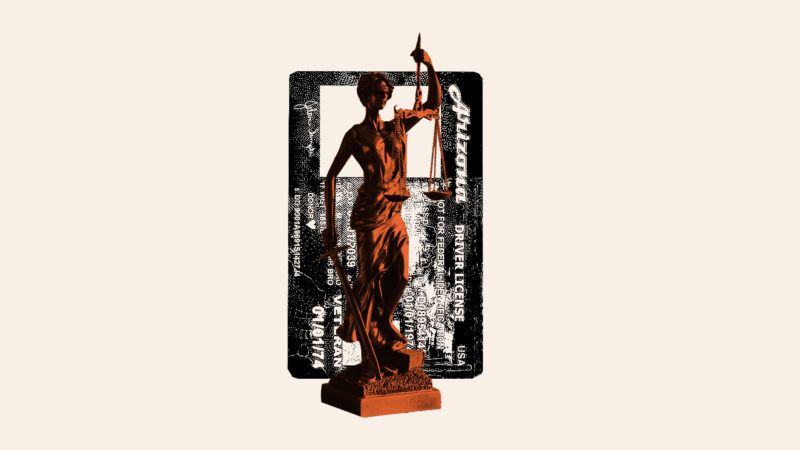Arizona Legislature Votes to End License Suspensions for Ticket Debts
Advocates say the legislation would restore an estimated 30,000 driver's licenses.

The Arizona legislature passed a bill last Thursday to end the suspension of driver's licenses for outstanding traffic ticket fines, a move that advocates say will affect roughly 30,000 people in the state.
The bill, S.B. 1551, passed the Arizona House and Senate by unanimous votes and now goes to the desk of Republican Gov. Doug Ducey to be signed into law. The measure would restrict the state from suspending a driver's license due to unpaid civil traffic violations, except for those with commercial driving licenses.
Criminal justice advocates say suspending licenses for unpaid ticket and court debts is overly punitive and counterproductive, since losing a driver's license makes it harder to get to work. The Washington Post estimated in 2018 that 7 million people nationwide had their license to drive suspended for unpaid traffic tickets and court debts. As Reason reported in 2016, nearly 900,000 Virginia residents—roughly 11 percent of the state—had suspended licenses at any given time. The majority of those suspensions were for unpaid court debts.
Lauren Krisai, a senior policy analyst at the Justice Action Network, a criminal justice advocacy group that supported the Arizona legislation, says the new law will retroactively reinstate the licenses of roughly 30,000 Arizonans whose driving privileges were suspended for court debts.
"It's great to see such a sweeping reform that will impact so many lives pass in such a tough state like Arizona, and it's frankly surprising that it was able to get done without any major opposition," Krisai says. "I wish I knew how to recreate this moment with every reform bill as impactful as this bill going forward. Sen. Paul Boyer was a great sponsor and we were grateful to work with him on this."
Arizona is the latest state to roll back license suspensions because of such concerns. Earlier this year, Illinois enacted reforms ending the suspension of driver's licenses for most non-moving violations. Virginia, West Virginia, and Maryland all passed similar bills last year.
Many jurisdictions don't take into account whether someone is too poor to pay off their fines, raising constitutional concerns. In 2018, a federal judge in Michigan enjoined the practice when it's applied to the very poor, ruling that suspending licenses without determining the debtors' ability to pay likely violates due process. And in 2017, a federal judge for the U.S. District Court for the Middle District of Tennessee reinstated the licenses of two residents in what may have been the first ruling of its kind. "Taking an individual's driver's license away to try to make her more likely to pay a fine is not using a shotgun to do the job of a rifle: it is using a shotgun to treat a broken arm," wrote U.S. District Court Judge Aleta Trauger.
Arizona's new law will also expand mitigation options and flexibility for those who can't afford to pay off their fines.
Steven Scharboneau, legislative advocate for Arizona Attorneys for Criminal Justice, an organization that also supported the bill, said it will "prevent individuals who cannot afford to pay fines or fees from having their driver's licenses stripped from them as punishment."
"Disallowing an earner of a family that is already in a position of financial hardship from driving, especially in a state that is so geographically sprawled, does the people of Arizona no favors," Scharboneau said in a statement. "SB 1551 is a step in the right direction and is an example of how productivity can be increased in Arizona by decreasing harsh punishments that the law currently imposes."


Show Comments (31)